As I mentioned in a few of my previous posts, the first time I came to Sicily for a volunteering project. Actually, it was a complete accident, but yeah, some people call it coincidence, I call it fate.
After returning to Kyiv from Thailand, I was very happy to be back home. Well, I was very happy for about a month. After that, when all the emotions faded, all the Thai presents were gifted, all the delicious food and all the Cambodian coffee was finished the reality kicked in (even though I still have dreams about that coffee…)
I realised that I’m back to where I started from - in my room, just that now it was decorated with lovely Thai lights. And somewhere there, far-far away, the world continues to be interesting and full of adventures. Just that someone else was living it, not me.
Don’t get me wrong, it was my decision to leave Thailand and go back home. It was a great experience, but for various reasons, at this point of my life, I can’t see myself moving to Chiang Mai permanently. But the desire for adventures was already fully awakened and wanted to dance.
So I started researching volunteering opportunities – my newly grown sense of self was telling me that I shouldn’t even be bothered with searching for a job as I will not be happy in a corporate environment anymore.
* An important life tip – it might come as a surprise for some people, but volunteering is expensive. And I mean it – really, really expensive. So expensive that it turns volunteering into a private elitist club only for rich people. I realised it back in Thailand, when I wanted to dedicate some of my time to a Chiang Mai located NGO (whose name I will not mention) that was helping refugee women from Myanmar get more opportunities in life – graduate from school, learn languages, pass exams to be accepted to a university. I was very naive to think that I can be helpful to them a few times a week for a few hours, as I really liked the job they were doing. Well, of course, it was not the case. My email received a response with a link to “The requirements for volunteers”, that included:
a) being a native English speakers
b) to work in the office from 9-00 till 18-00 5 days a week and to help with events on the weekends
c) to sign a contract and to commit to volunteer for at least 6 month
d) to donate money to the NGO every month – at least the amount that is already fixed (!)
To say that I was shocked would be a huge understatement. I fully understand that organisations that work in the humanitarian field are always in search of funding, but that was basically a slap on the face. I wasn’t allowed to help based on the fact that I was not a rich native English speaker. Correct me if I’m wrong, but does it seem right or even logical to anyone? I have a few theories about why volunteering is presumed to be only for rich white people, but maybe I will make a different post on that.
So when I started looking for volunteering opportunities all around the world, the amounts I were expected to donate while living in a forest in a tent (that I will, of course, bring with me from Ukraine) were not that shocking to me. But in any case, I wasn’t able to afford it and had to become really creative with my research.
This is how I found EVS – European Voluntary Service. For those who are not familiar with the idea, it is one of the programs of European Commission. Volunteering projects can last from 2-3 (short term projects) up to 6-12 month (long term projects), during which volunteers are going to a different country and perform their volunteering duties there. The volunteering usually includes working in social centres, cultural organisations or NGOs in the field of human rights, ecology, healthy lifestyles, migration or disabilities.
Celebrating the trip to Naples with white wine on the ferry - May 2014
And (finally!) nobody expects you to donate thousands of euro for a privilege to volunteer. On the contrary, on the terms of the program you as a volunteer will get:
a) tickets to your place of service and back, to your home country – including plane, train and bus tickets
b) visa assistance (if you are like me and need to get a visa to go almost anywhere)
c) accommodation and all the bills (water, electricity, gas) paid
d) life insurance for the whole duration of the service + 2 months more
e) 80 hours of language classes (now, I believe, it’s 40 hours and then an online course, but I did 80 hours)
f) a monthly allowance + money for food (in some projects volunteers get food at their place of residence, so they are only paid the allowance, in other – allowance + meal tickets. I was very lucky – I was paid all the amount and could decide what and where I want to eat, to cook by myself of to eat out)
Some may argue that it’s not technically volunteering if you are getting paid. But I will not agree. As an international volunteer, you add to the cause not only your effort and time but also your perspective, ideas, fresh view of the situation, your knowledge of a different language, realities and practices. So, in my opinion, it’s only fair that you are getting paid some amount for working 5 days a week for about 6 hours.
Interview for Radio Vaticana - Vatican, May 2014
To apply for EVS you need to be between 18 and 30 years old and a resident of a program (EU countries + Macedonia, Iceland, Norway, Liechtenstein and Turkey) or a partner country (Western Balkans, Easter partnership, South Mediterranean countries and Russia). It’s possible to do an EVS if you are from other countries too but under special circumstances. For example, here in Italy, I’ve met fellow volunteers from Brazil, Mexico, Nepal, India, China, Senegal, Cameroon, Kenya etc. But it really depends on partnerships between NGOs.
I was very fortunate to be selected for the first project I’ve applied for, which, as I understand now, is a very rare thing – I know many volunteers that were applying for every project available for years before being selected. To be honest, I can’t explain it. I think in this case it’s a crazy mixture of an idea behind the project, of coordinators’ personalities, of keywords in a motivation letter, a CV and a Skype interview, the wind direction and time of a year. I’m joking of course, but you got the point – there’s no formula for getting the project you want to get.
So I was selected for a Palermo-based project that was focused on working with migrants. I was working in the office of my hosting organisation, writing and implementing projects. My 9 months long project was later extended to 12 months, so I had a very rich experience as a volunteer.
If you are also interested in becoming an EVS volunteer, I can suggest a few things:
- Educate yourself on all the rules and requirements of EVS. Unfortunately, I cannot cover all the details in this post, as it’s already quite long, but you can make your own research and be prepared and aware of all the things this program includes. It’s important both for searching for a project and for your service, as some NGOs are worse than others in the question of being honest with volunteers and protecting their interests. This way you will know what is guaranteed to you in exchange for your service and how you are supposed to be treated.
The view from San Pietro - Vatican, May 2014
- Look for a project well in advance. If you want to start your service in summer, don’t wait until June to start applying. As I mentioned I was selected for the first project I’ve applied for. But to understand the time frame – I’ve applied in September 2013, had my Skype interview in December and arrived in Palermo in the beginning of April 2014. So plan ahead, write to NGOs, ask about the projects you can apply for and try, try, try.
- Having said that – I really don’t suggest to apply for every project you see. As I wrote before, you can only do 12 months of EVS in your life, so think of it as of a once-in-a-lifetime experience. It doesn’t mean that you need to pick up a country and a city and wait for a perfect project to appear. You can never know which country and which city will start feeling like a second home. What I meant was that you need to choose a project very carefully. If you really know it in your heart that the last thing you want to do is to work with children, better don’t apply for a place in a kindergarten. If you are not a fan of sun and water, to choose an NGO that saves sea turtles. If you absolutely cannot live without clubs and nightlife, don’t try to get a post in a mountain village.
Trying new things can be a beautiful and a very rewarding thing, and I’ve met many people whose projects completely changed their lives, goals and personalities. But I also know people who from the first day of their service were struggling with their placements, volunteering duties and in the end went home very soon. In my opinion, they would’ve been so much happier if they took the time to research their projects, cities, think about their own strengths, weaknesses and life goals.
If you really know that it’s not for you, better chose something else. It’s 2 to 12 month of your life, and it’s important to know what you want to do. I was actually very lucky that everything went so well with my project, as I had no idea about what I was applying for. But yes, research is the key.
- Research the climate and weather conditions. Again – the more you know about your place of placement, the better. For example, I did my research and brought a coat and a pair of boots with me (many people didn’t because Sicily is stereotypically seen as a very hot place. Well, it’s true, but not in winter!). And again – the fact that I did bring warm clothes with me doesn’t mean that I wasn’t freezing my first winter here. Because yes, it gets cold.
Monte Pellegrino - Palermo, July 2014
- Start learning the language in advance. Just trust me on that. The places where you can spend 9 months speaking only English are not that many. For example, Sicily is not one of them. Going out for drinks, buying food at the market and dealing with your landlord will be super stressful without any Italian. So I really suggest starting to learn the language before, even if via Duolingo app. But if you already speak some language, during your volunteering you will improve it tremendously in no time.
Piazza Duomo - Milan, October 2014
- Don’t bring too many things and don’t stress about not being able to fit one more pair of heels into your suitcase. Of course, you need to bring the necessities. But you will see how much less materialistic you will become with time. Every time I come home after an abroad experience, I always get a little bit shocked at how many things I have and at the fact that I don’t even remember I had any of them.
- Be open to experiences and adventures. You have only so much to enjoy your volunteering time, don’t think that you have a lot! Forget the words: “I will do it one day”. Do it now! Go on that trip, research interesting destinations next to you, learn how to buy cheap tickets, say yes to new things. Now, one year later, the things I remember the most are not the TV-shows I watched, computer games I played and FB photos I liked (because I almost never did that). I remember the evenings spent with friends at the port, eating ice-cream and taking a break from crazy summer heat. I remember the watermelon party we once had. I remember a weekend in Corleone that was so spontaneous and so great and all the other trips, small and big. I remember surprise parties and bringing pumpkin pie to concerts, and just random evenings when some of my friends called me saying: “They put such nice lights at piazza Sant’Anna, come over for a beer!”. The things that really matter are experiences. So say yes to new things and just enjoy every day of your time as a volunteer!
Villa Malfitano, Palermo, April 2015
Hope you liked this post and that it was useful! Have a great day and stay tuned!

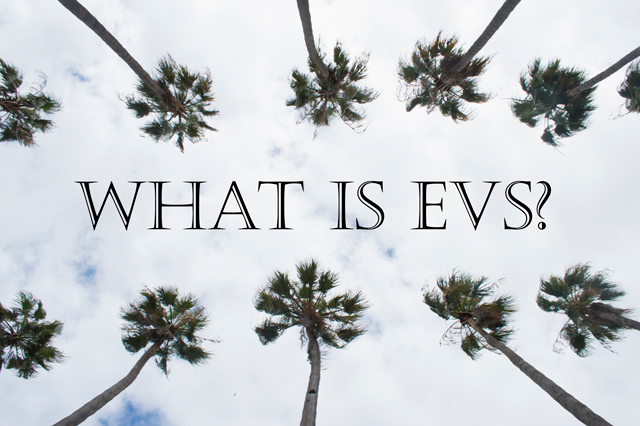
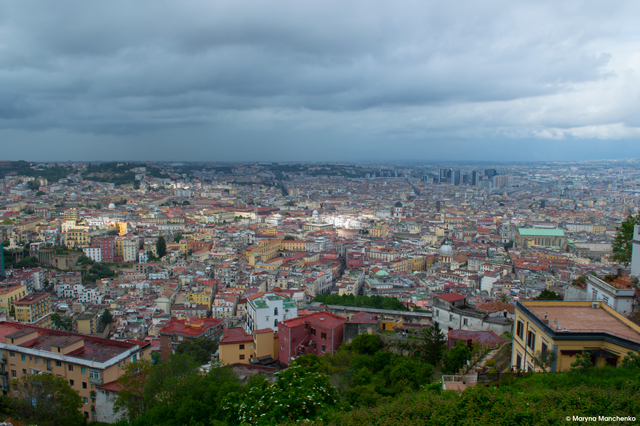
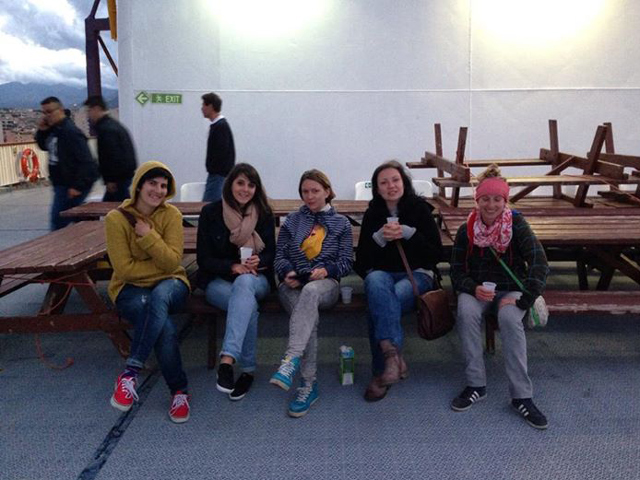
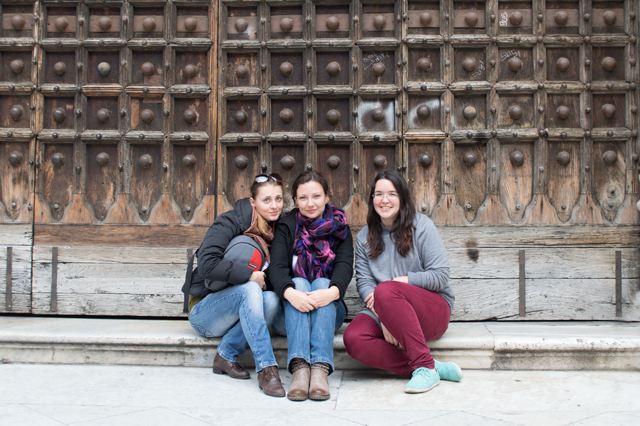
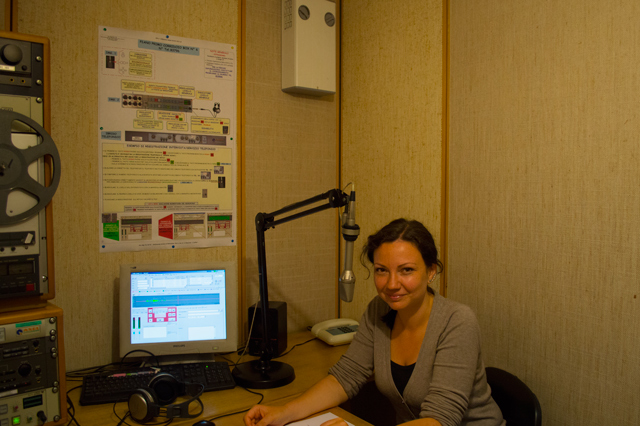
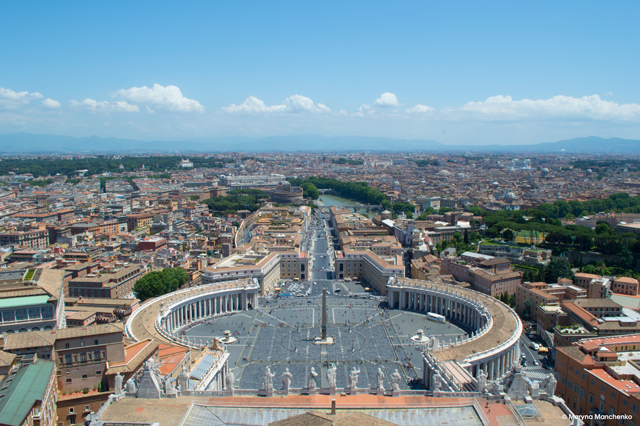
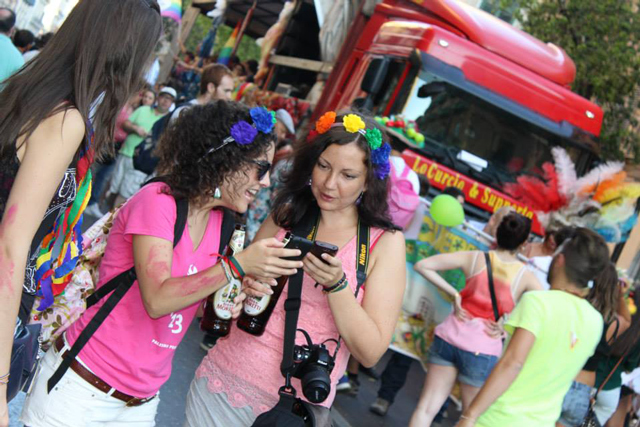
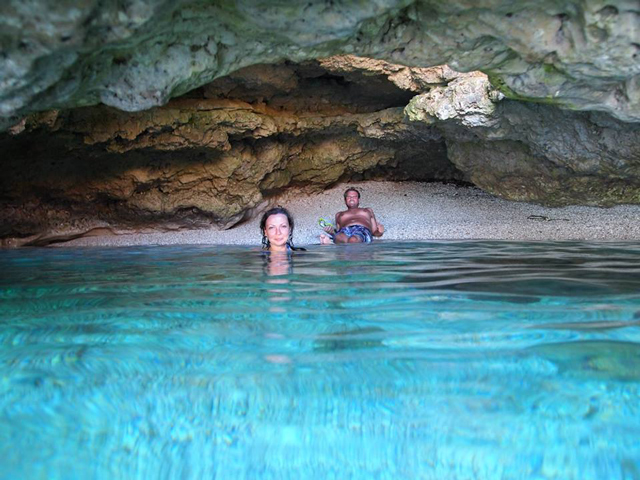
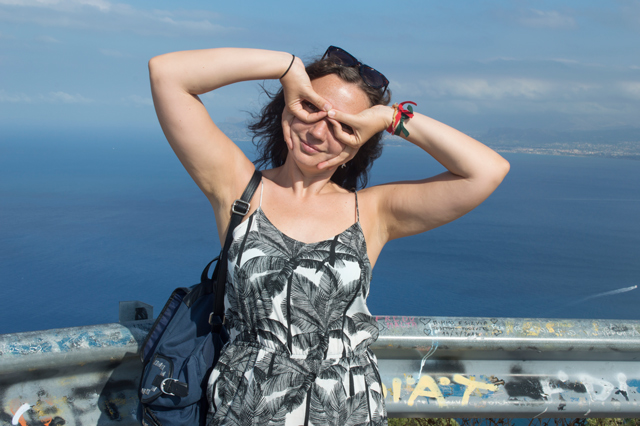
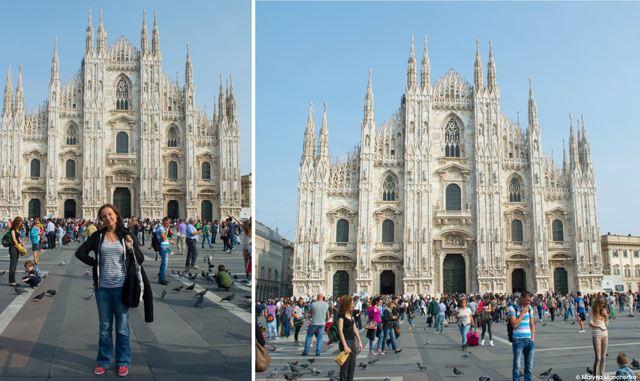
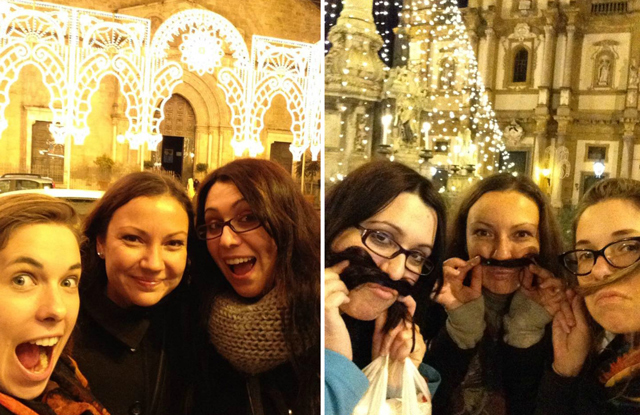
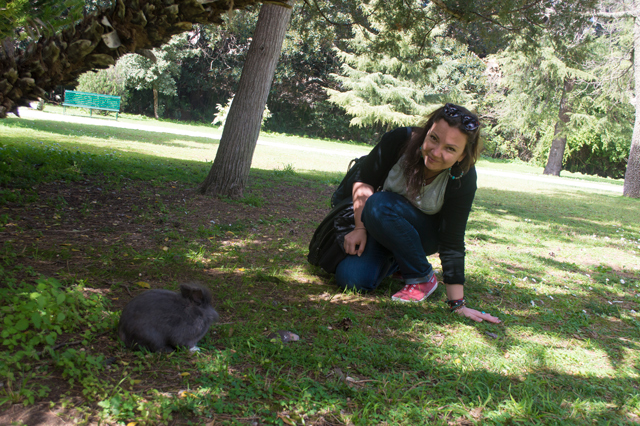
Немає коментарів:
Дописати коментар